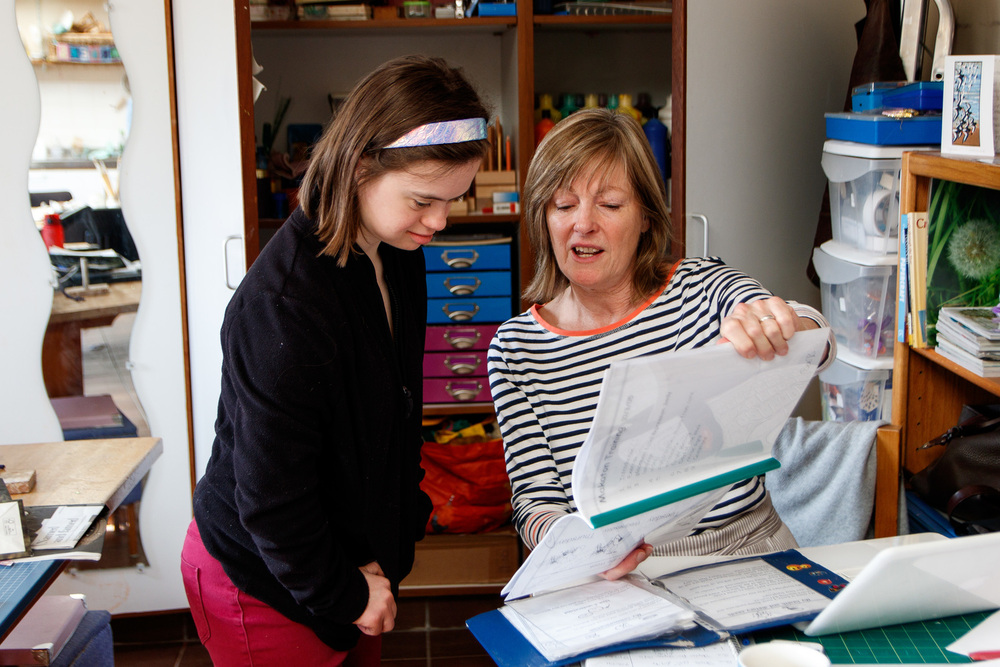Learning disability definition
A learning disability is a neurological condition that affects a person’s ability to process, understand, or retain information, which can make it challenging for them to learn new things or perform certain tasks. A learning disability will affect the way people learn new things throughout their life; it is a lifelong condition. Learning disabilities usually start in childhood but may not get diagnosed until adulthood.
People with a learning disability may need support with understanding complex information, engaging with other people, and developing new skills.
There are different types of learning disabilities which can be mild, moderate, severe, or profound.
Mild learning disability
People with a mild learning disability are often able to be independent carrying out everyday tasks and interacting with others. However, they may still require support with other tasks such as filling out a form.
Sever or profound learning disability
People with a severe or profound learning disability often require support with daily activities and everyday tasks such as eating or washing.
Moderate learning disability
People with a moderate learning disability may also require support with these tasks, but it depends on the person.
We recognise that each person’s experience with a learning disability is unique, and support should be tailored to their specific needs.
Approximately 1.5 million people have learning disabilities in the UK.
Sometimes people get learning disability and learning difficulty confused, but they are not the same.
Autism and Asperger’s syndrome
Autism is not a learning disability, but in a similar way to learning disabilities, it is a lifelong condition, and around 50% of autistic people may also have a learning disability. Autism is sometimes referred to as Autism spectrum disorder (ASD). Autism is a neurodevelopmental disorder that affects how people communicate and interact with others and the world around them.
Asperger’s syndrome is a type of Autism. People with Asperger’s syndrome don’t have a learning disability but they do experience the world differently to other people therefore they might still need support. They see, hear, and feel the world differently around them.
Learning difficulty definition
A learning difficulty refers to a condition that can cause people to experience challenges in a traditional classroom learning context. Unlike a learning disability, a learning difficulty does not affect a person’s general intelligence but can affect the way that they process certain types of information and how they learn.
Some examples of learning difficulties:
- Dyslexia: a common learning difficulty that primarily affects reading, writing, and spelling, but does not impact intelligence.
- ADHD: short for attention deficit hyperactivity disorder, it is a condition that includes symptoms such as being restless and having trouble concentrating.
- Dyspraxia: a developmental condition that affects coordination and motor skills, often impacting everyday tasks and activities.
- Dyscalculia: a learning difficulty that affects the ability to understand and work with numbers, impacting tasks like arithmetic and number-related reasoning.
- Dysgraphia: a learning difficulty that affects writing skills, including handwriting, spelling, and organising thoughts on paper.
Learning disability vs learning difficulty
What’s the difference between a learning disability and learning difficulty? A learning disability is a condition that affects the way a person’s brain processes information, making it harder for them to learn, understand, or do certain things. It affects overall intellect. On the other hand, a learning difficulty does not impact general intellect. Instead, it refers to specific challenges in areas such as reading, writing, or mathematical reasoning, while the individual’s overall intelligence remains unaffected.
In summary, while a learning disability affects overall understanding and intellectual capacity, a learning difficulty impacts specific skills or tasks, with no influence on general cognitive ability.
Neurodiversity
Another term that is often mentioned within the learning disability community is neurodiversity.
Neurodiversity describes the concept that people experience and interact with the world in various ways. There is no single ‘correct’ way of thinking, learning, or behaving, and these differences are not considered deficits. Rather than seeing differences as deficits, neurodiversity celebrates the natural variations in human brains and nervous systems.
We celebrate neurodiversity and are committed to creating an inclusive environment for all.
Other challenges
Some of the people we support may face other challenges alongside a learning disability. Some of those being:
- Mental health problems: Between 25 and 40% of people with learning disabilities also experience mental health problems.
- Complex needs: People with learning disabilities may often have multiple co-existing conditions that overlap and interact, resulting in a complex and unique profile of needs.
- Challenging behaviour: People with learning disabilities may sometimes exhibit challenging behaviour, which can arise from a variety of factors, including communication difficulties, unmet needs, or environmental triggers.
- Autism: People with learning disabilities may also have autism, which can affect how they perceive and interact with the world.
- Asperger’s syndrome: People with learning disabilities may also have Asperger’s syndrome, a form of autism spectrum disorder, which can affect social interaction, communication, and behaviour.
Signs of learning disabilities
Recognising the signs of a learning disability is crucial for early intervention and support. These signs can vary between children and adults, though there are some commonalities.
Some signs in children
- Language delays and slower development
- Trouble with coordination, such as catching a ball
- Difficulty paying attention, following instructions, or sitting still for activities
- Poor memory and concentration
- Difficulty understanding basic math concepts, learning to count, and memorizing arithmetic facts
Some signs in adults
- Persistent difficulties with reading, writing, or understanding written text
- Ongoing struggles with mathematical concepts, calculations, and understanding numbers
- Trouble understanding social cues, maintaining conversations, or interpreting body language
- Problems with short-term memory, difficulty following directions, or maintaining attention on tasks
Common signs across all ages
- Slow processing of information, taking longer than others to complete tasks
- Struggling with planning, problem-solving, and critical thinking tasks
- Frustration, anxiety, low self-esteem, and behavioral problems
Causes of learning disabilities
Sometimes we don’t know the reason why a person has a learning disability. People’s brain development can be affected before birth, during birth or after birth in childhood.
This can be caused by:
- Genetic factors (family history)
- Differences in brain structure or function
- Prenatal exposure to toxins
- Extremely premature births
- Problems during birth
- Illnesses or injury during early childhood
- Neurological issues affecting language, memory, or attention
- Conditions caused by chromosome differences, such as Down’s Syndrome
Key stats and quick facts
Find out some key statistics and quick facts about learning disabilities.
Stats and factsHear from the people we support
It’s important we recognise that people with learning disabilities should not be treated any differently and the language we use is vital in creating a positive culture and promoting inclusivity.
The people we support have come together to highlight why language matters.
But, unfortunately, examples like these reinforce the ‘othering’ of people with learning disabilities. The knock-on effect is that we see people with learning and other disabilities as different or less than.
Listen to what they have to say and understand why language and the words we choose mean so much.
Re-framing perceptions of people with learning disabilities
Our Co-Production team worked with some of the people we support to re-frame perceptions of people with learning disabilities through ‘myth-busting’ and challenging stereotypes!
“People with Learning Disabilities can’t drive!”
Meet Ollie from our St Albans community not only can he drive a car, but he also recently received his BUS license.
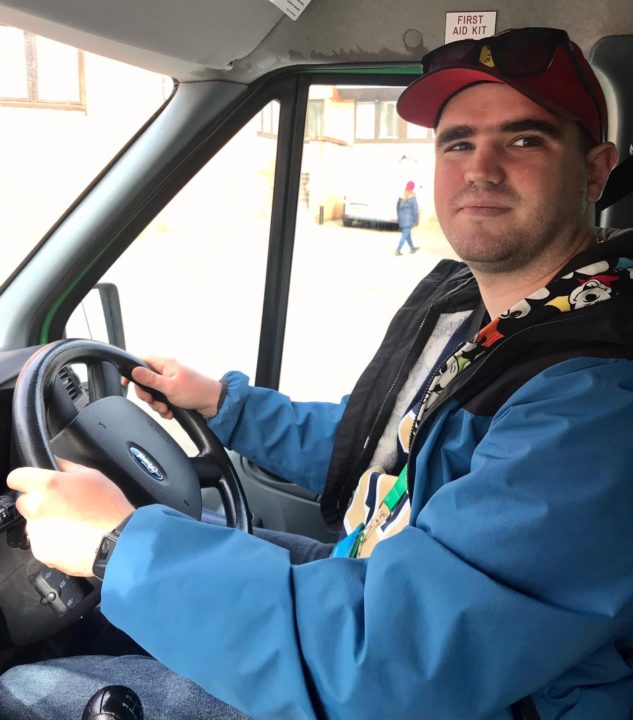
“People with Learning Disabilities can’t raise money for others, people raise money for them!”
Steph from our Larchfield community completed a 5k sponsored walk and raised a fantastic £256 for Cancer Research.
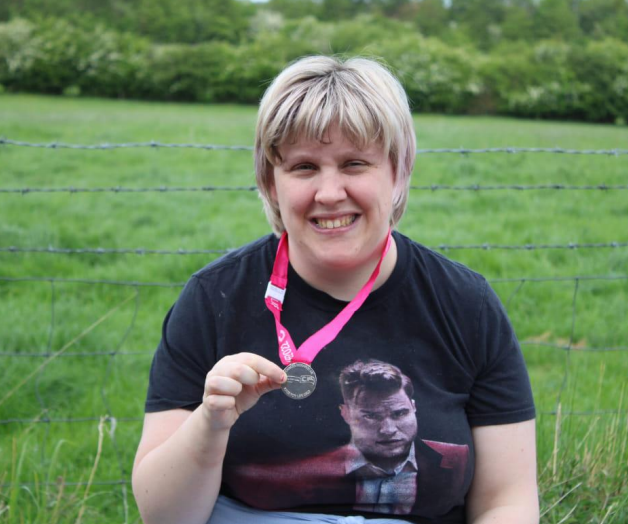
“People with Learning Disabilities can’t get married!”
Karen and Andrew were married on 14th May 2022 and have recently celebrated their 1st wedding anniversary. They live happily together in our Stourbridge community.
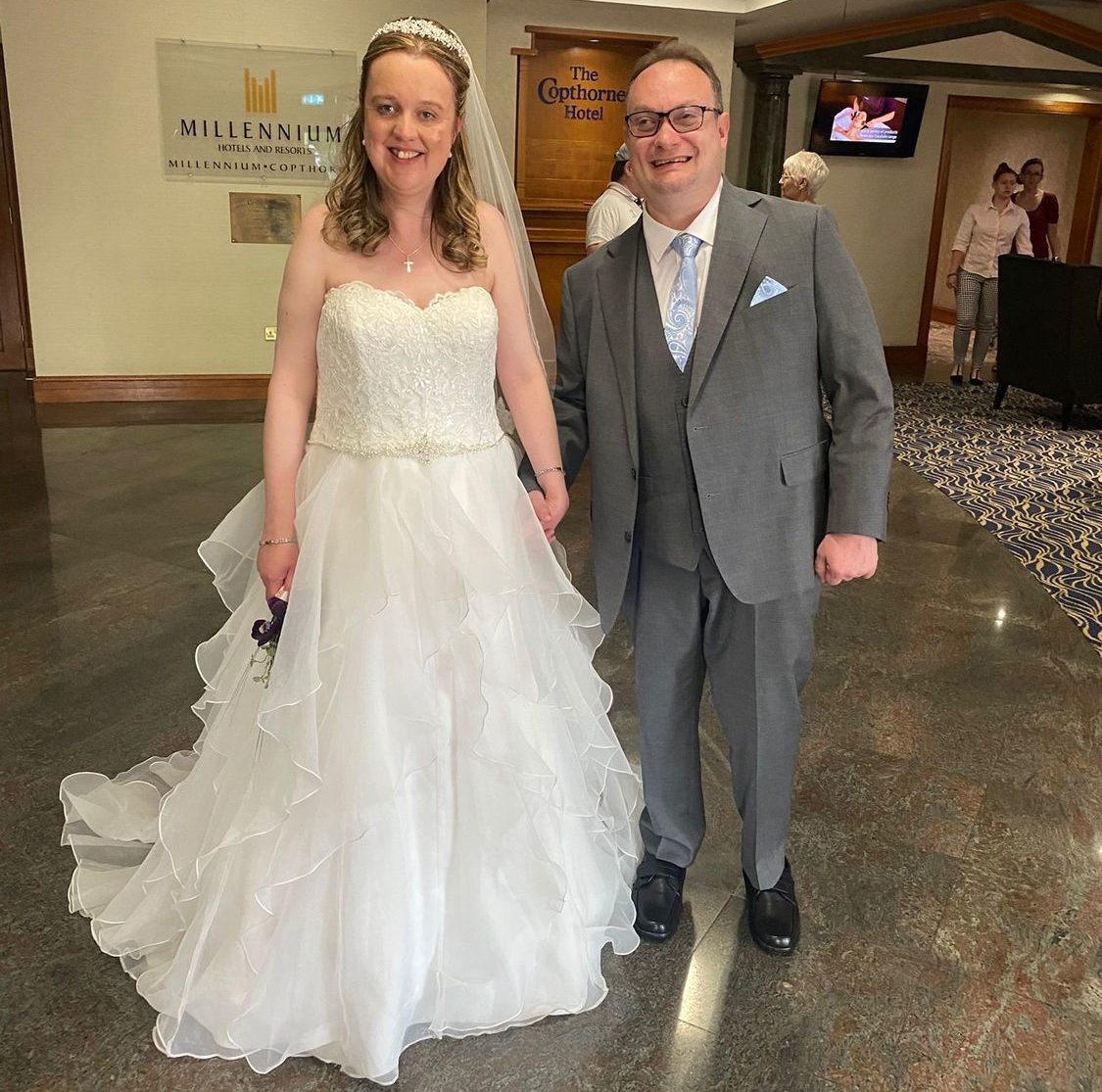
“People with Learning Disabilities can’t have a paid job!”
Simon is a paid ‘Life of Opportunity’ reviewer, working for the Trust. He travels around all the communities meeting with people we support and ensuring they have the opportunities they want.
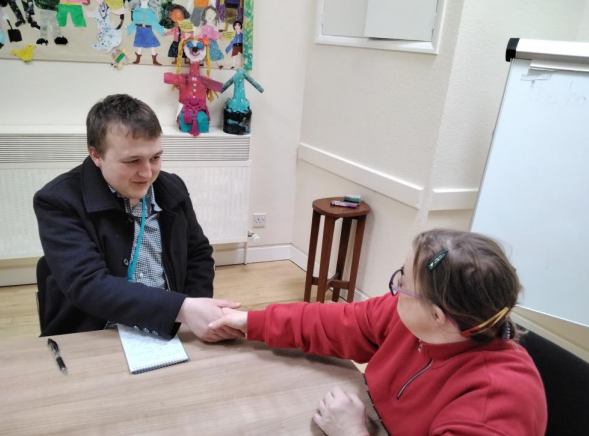
“People with Learning Disabilities can’t learn new skills!”
Abi and Susie, our hospitality Trainees at Severnside Skills, are continually learning new skills and gaining qualifications at our training academy in Gloucester.
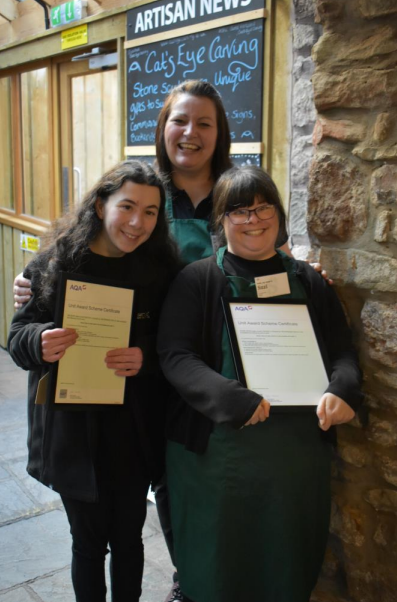
These are just a few of the amazing people we support at Camphill Village Trust who challenge stereotypes and focus on can not can’t.
We give the people we support the chance to create their life of opportunity.
Getting support
At Camphill Village Trust our approach is to focus on the person rather than the learning disability. We explore with each person how we can support, encourage and empower them to make informed choices, gain life skills and contribute to society in a way that brings purpose and meaning to them. Discover our services and the type of support we offer.
Get in touch if you or someone you know requires support.
Contact Us
